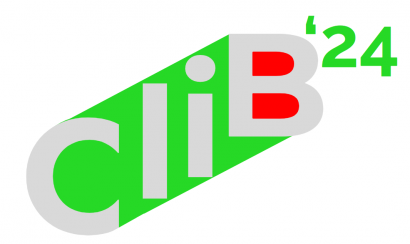Dr. Georg Rehm (German Research Center for Artificial Intelligence)
June 23rd, 2020
Short bio
 Dr. Georg Rehm works as a Principal Researcher in the Speech and Language Technology Lab at the German Research Center for Artificial Intelligence (DFKI), in Berlin. He is the General Secretary of META-NET, an EU/EC-funded Network of Excellence consisting of 60 research centers from 34 countries, dedicated to building the technological foundations of a multilingual European information society. Currently, Georg Rehm is the Coordinator of the BMBF-funded project QURATOR (Curation Technologies, 2018-2021) and the EU-funded project European Language Grid (ELG, 2019-2021). Furthermore, he is involved as a Principal Investigator in the European project Lynx: Building the Legal Knowledge Graph for Smart Compliance Services in Multilingual Europe (2017-2020) and in the BMWi-funded project SPEAKER (2020-2023).
Dr. Georg Rehm works as a Principal Researcher in the Speech and Language Technology Lab at the German Research Center for Artificial Intelligence (DFKI), in Berlin. He is the General Secretary of META-NET, an EU/EC-funded Network of Excellence consisting of 60 research centers from 34 countries, dedicated to building the technological foundations of a multilingual European information society. Currently, Georg Rehm is the Coordinator of the BMBF-funded project QURATOR (Curation Technologies, 2018-2021) and the EU-funded project European Language Grid (ELG, 2019-2021). Furthermore, he is involved as a Principal Investigator in the European project Lynx: Building the Legal Knowledge Graph for Smart Compliance Services in Multilingual Europe (2017-2020) and in the BMWi-funded project SPEAKER (2020-2023).
In October 2018, Georg Rehm was awarded the honorary appointment as a DFKI Research Fellow for outstanding scientific achievements and special accomplishments in technology transfer.
Between 2015 and 2017, Georg Rehm was the coordinator of the BMBF-funded project Digitale Kuratierungstechnologien. He also was the Coordinator of the EU/EC-funded project CRACKER (2015-2017) which initiated, among others, the emerging European federation Cracking the Language Barrier. From 2010 to 2013 he was the project manager of T4ME, the original META-NET project.
Since 2013, Georg Rehm has been the Head of the German/Austrian Office of the World Wide Web Consortium (W3C), hosted at DFKI in Berlin. Georg Rehm is especially involved in Digital Publishing, Web of Things, Data Activity, Credible Web. Also related to ICT and standardisation, Georg Rehm is a member of the DIN Presidential Committee FOCUS.ICT.
Georg Rehm holds an M.A. in Computational Linguistics and Artificial Intelligence, Linguistics and Computer Science from the University of Osnabruck. After completing his PhD in Computational Linguistics at the University of Giessen, he worked at the University of Tubingen, leading projects on the sustainability of language resources and technologies. After being responsible for the language technology development at an award-winning internet startup in Berlin, he joined DFKI in early 2010.
Georg Rehm has authored, co-authored or edited more than 180 research publications and co-edited, together with Hans Uszkoreit, the META-NET White Paper Series Europe’s Languages in the Digital Age as well as the META-NET Strategic Research Agenda for Multilingual 2020. He is also one of the editors of Language Technologies for Multilingual Europe: Towards a Human Language Project – Strategic Research and Innovation Agenda.
Talk abstract
Demonstration of the European Language Grid
With 24 official EU and many additional languages, multilingualism in Europe and an inclusive Digital Single Market can only be enabled through Language Technologies (LTs). European LT business is dominated by hundreds of SMEs and a few large players. Many are world-class, with technologies that outperform the global players. However, European LT business is also fragmented – by nation states, languages, verticals and sectors, significantly holding back its impact. The European Language Grid (ELG) project addresses this fragmentation by establishing the ELG as the primary platform for LT in Europe. The ELG is a scalable cloud platform, providing, in an easy-to-integrate way, access to hundreds of commercial and non-commercial LTs for all European languages, including running tools and services as well as data sets and resources. Once fully operational, it will enable the commercial and non-commercial European LT community to deposit and upload their technologies and data sets into the ELG, to deploy them through the grid, and to connect with other resources. The ELG will boost the Multilingual Digital Single Market towards a thriving European LT community, creating new jobs and opportunities. Furthermore, the ELG project organises two open calls for up to 20 pilot projects, one of which was recently closed. The presentation will give an overview of the European Language Grid project and it will also contain a demonstration of the emerging ELG technology platform.
